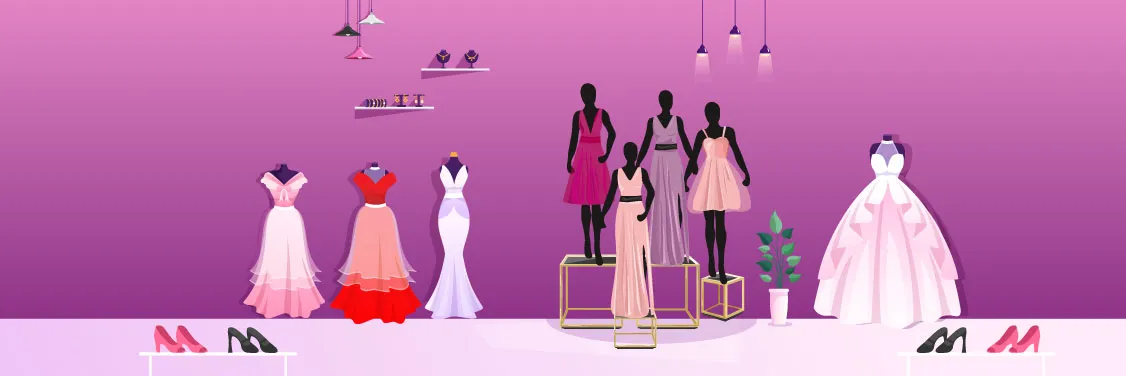

As sustainability remains to be the core focus for a majority of brands and businesses due to growing consumer expectations for greater stance and commitment towards environmental care, the new-age practice of biophilic store design conceptualization that seeks to turn places into close-to-nature environments tends to be the most promising way for gaining immense repute and trust of the new conscious consumers.
While the changing dynamics in retail space design guides leaders and designers to embrace the idea of sustainable environmental interior design to reflect absolute commitment on contribution towards the welfare of society and the planet at large, the global luxury players must explore the compelling fusion of opulence and nature.
Perceived as a futuristic practice, biophilic design being a major practice facilitating the creation of awe-inspiring environments with high degree of sophistication and concentration on building a natural worldly environment, isn’t a trend but a concept defining the projection and positioning of the brands and businesses.
In view of the aggressive shift in consumer priorities towards clean, high-quality, and muted aesthetics, biophilic design should be the go-to strategy for even niche brands to establish spectacular boutiques that reflects remarkable out-of-the-box outlook in line with the new consumer sentiments.
Going by the promising projection, the global luxury goods market is expected to hit USD 392.40 billion by 2030, as per a recent report by Fortune Business Insights, luxury brands could secure a larger client base by aligning projection strategies with consumers’ changing take and perceptions on luxury.
Substantiating the importance of Biophilic design for brand positioning, studies and research by organizations such as the World Green Building Council highlights the environmental and health benefits of utilizing material with low environmental impact. This aligns with the global shift towards sustainable practices, making the concept not just a design philosophy but an imperative fundamental to the brand ethos and values.
Corroborating the significance and relevance of such practice in the present time, numerous studies, including those conducted by renowned institutions like Harvard University, emphasize the positive impact of nature on mental health and cognitive functionality. Exposure to natural light, greenery, and organic patterns within built spaces has been linked to reduced stress levels and increased productivity.
Going beyond glitters

Luxury boutique interior design isn't just about creating lavish spaces but acts as a significant economic driver in the hospitality and retail sectors. Reflecting upon the growth, a report by Allied Market Research suggesting the global luxury furniture market to witness substantial growth due to increasing demand for unique and customized interior solutions substantiates the fact that consumers are willing to invest in bespoke, high-quality designs that go beyond mere functionality.
The economic aspect further adds to the importance of luxury boutique interior design, defined as not just a practice but a strategic investment.
While the fusion of biophilic design and luxury boutique is perceived as a demand-driven reality, the growing interest in sustainable and nature-inspired design among consumers, particularly in the luxury segment drives retail heads to embrace the concept and future-proof the business at scale. For instance, a survey by the American Society of Interior Designers (ASID), found there's a notable increase in clients seeking designs that prioritize environmental responsibility and well-being.
Further in relation to natural retail environments and luxury boutiques, the trend ‘multi-species home that refers to pet-centric interiors, has become more established which seeks to ensure places that accommodate pets. As the affluent lifestyle of the luxury-seeking clients includes care and concern for pets as children and plants as companions, the idea of dedicating spaces within luxury boutiques to accommodate all species would further complement the biophilic interiors quite surprisingly.
Besides that, colours being central in bringing unmatched sophistication to exceptional luxury boutiques, holds immense power to make profound impact on customers’ conscience. Identified as a warm yet restorative color that refreshes the mind and body, Apricot Crush, as a new striking color, appeals to consumers’ struggling with emotions and feelings linked to a deep sense of uncertainty about the future. Defined as a rebalancing bright with an activating vitamin-inspired tone that embodies a full-spectrum approach to health and wellbeing, the color is believed to be extremely important for instilling a sense of comfort and inspiring hope and positivity in a period of uncertainty.
Exploring the potential

Biophilic design as a concept rooted in the innate human connection with nature, continues to gain prominence in the luxury boutiques sphere. The fusion of opulence and natural elements creates a unique and compelling outlook. The importance of biophilic design in luxury boutiques lies in its ability to enhance the overall ambiance, elevate brand perception, and foster a deeper connection between consumers and the products on display.
Being synonymous with exclusivity and sophistication, luxury boutiques aims to create an immersive and memorable environment for their high-and-mighty clientele.
The design practice aligning seamlessly with the sensitive impressions of the new consumers, and implemented with great focus on green walls, strategically placed indoor plants, and natural materials like wood and stone, evokes a sense of tranquillity and timelessness. This not only enhances the overall aesthetic appeal but also provides a respite from the bustling stressing environments, creating a haven for affluent clients to engage and remain longer.
Beyond aesthetic considerations, biophilic design contributes to the well-being of both customers and staff within luxury boutiques. By incorporating elements such as natural light, indoor greenery, and open views to the outdoors, luxury boutiques can create a healthier and comforting ambiance that focuses on well-being that aligns with the bigger shift of consumers with respect to affiliations with brands that prioritize not only the decor and exclusivity but commitment to holistic experiences.
As brand perception plays a pivotal role in influencing consumers,’ biophilic design sets luxury boutiques apart by demonstrating a commitment to environmental sustainability and a harmonious relationship with nature. The integration of eco-friendly materials, energy-efficient lighting, and responsible sourcing practices conforms to a stance on absolute responsibility that resonates with the league of informed yet highly conscious consumers. The alignment with sustainable values enhances the overall brand image, bringing authenticity and credibility.
Moreover, biophilic design facilitates a more immersive and sensory-driven shopping experience. By incorporating elements such as water features, natural scents, and tactile materials, luxury boutiques tap on multiple senses that translates into brand recognition and heightened loyalty.
The final say
The integration of biophilic design in luxury boutiques goes beyond mere aesthetics; it is a strategic investment in creating a unique, memorable, and emotionally resonant shopping environment. By aligning with the innate human connection with nature, luxury brands can elevate their image, foster well-being, and cultivate ever-lasting relationships with high-profile clients that seeks not only products of exceptional quality but also immersive and meaningful experiences.
As the luxury boutique design landscape continues to evolve, the amalgamation of biophilic design and luxury boutique interiors stands as a testament to the industry's adaptability and futuristic approach. It is not merely a trend but a transformative force that not only meets current demands but is the ultimate key to great retention, reliance, and faith of the consumers.